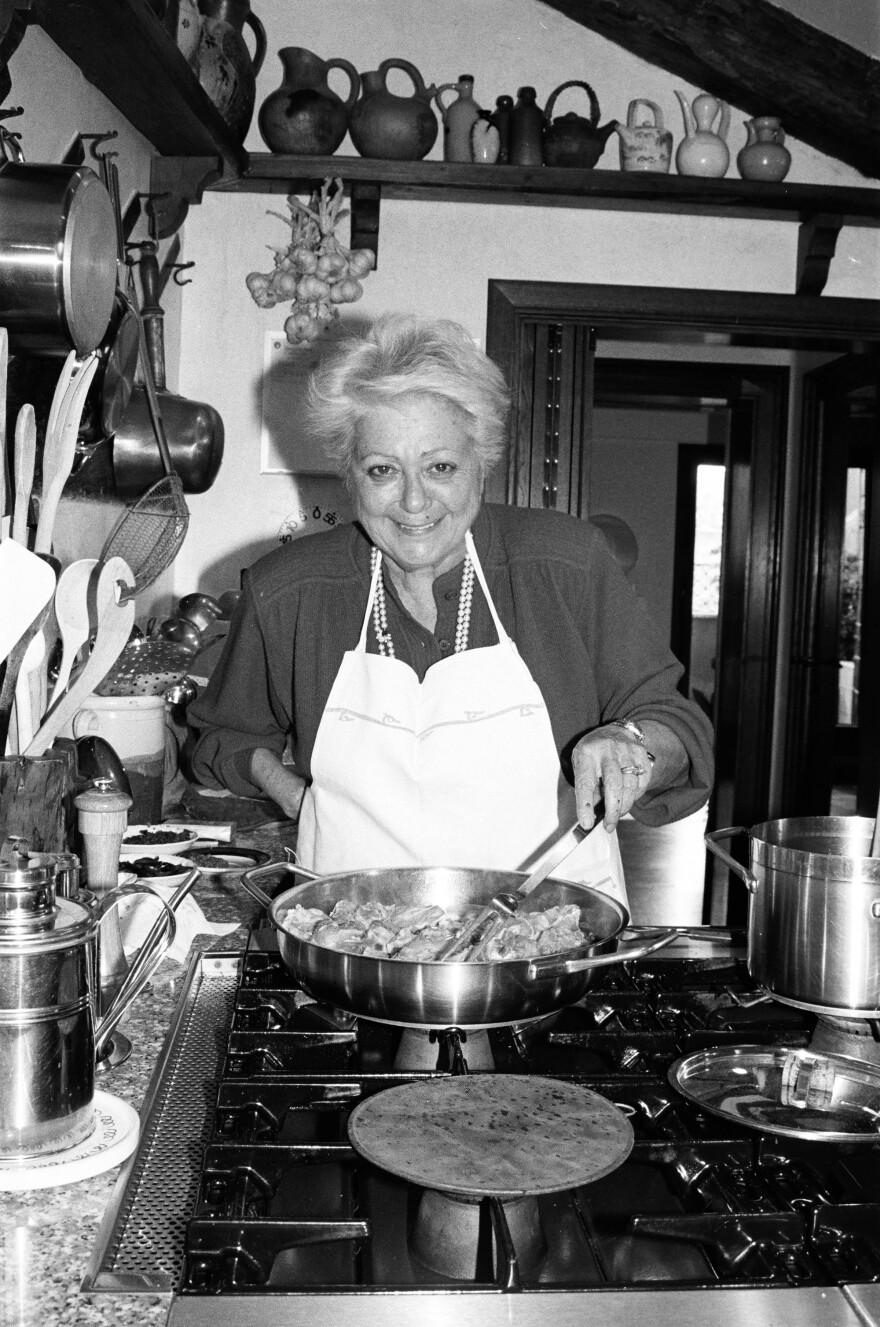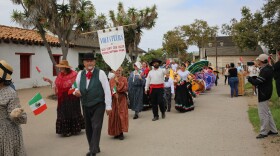This week the San Diego Asian Film Festival, San Diego Film Week and the Coronado Island Film Festival (CIFF) all overlap, giving filmgoers plenty of weekend options. But CIFF does have one attraction the other festivals don't.
Festivals often offer food at galas and parties but CIFF is once again partnering with The San Diego Food + Wine Festival for pairings of film and themed food for its Culinary Cinema Series.
The Culinary Cinema Series, which launched in 2018, features food-themed screenings paired with a culinary experience or tasting that complements the movie.

I have wonderful memories of seeing Les Blank's Cajun documentary, "I Went to the Dance," with the smell of simmering gumbo filling the theater and lobby, making the whole cinematic experience more immersive. So I highly recommend putting this programming on your festival menu. Plus, the series features panel discussions with both filmmakers and chefs.

Being Italian, I was drawn to the documentary "Marcella" (having its world premiere Sunday at 1:30 p.m. at the John D. Spreckels Center) about chef and author Marcella Hazan, who is credited with introducing people in the U.S. and the U.K. to the techniques of traditional Italian cooking.
Filmmaker Peter Miller had been using Hazan's cookbooks for years when his wife asked if anyone had ever made a documentary about Hazan. The answer was no, and Miller decided to fix that. Hazan died in 2013 but Miller reached out to her son and husband to get the project in motion. The entire process has taken years to complete.
The film highlights not just Hazan's impact on the culinary world but also her amazing life story of overcoming obstacles.
Since Hazan was all about teaching people how to cook, Miller decided he needed to show people making her recipes.
"How could I not have people cooking when talking about her work?" Miller proposed. "I realized there are a handful of iconic recipes that you can't tell Marcella's story without seeing be prepared. There's the chicken with two lemons, or there's that amazing three-ingredient tomato sauce, or there's her legendary bolognese, which takes a long time but is just an amazing recipe. I realized we had to actually get people in the kitchen cooking these recipes. But then beyond that, because this is the story of her life, I thought, what if they're cooking, but I'm also talking to them about Marcella and her life and her meaning and her purpose and what they learn from her while they're cooking? And so it ended up being a really interesting combination which would be a person is making tomato sauce, but they're also talking about this amazing woman, and they're also getting emotional."
These are some of the best moments in the film. Miller also pulls amazing archival footage from Hazan's TV appearances and from old super 8mm home movies that were discovered late in post-production.
Miller expressed appreciation for the documentaries of Les Blank and how they influenced him.
"I love his work, and in some ways, I look at his work as a model for how to build a career as a documentary maker," Miller added. "Sometimes the thing that he would do is take a very specific, simple subject, whether it was garlic or gap-toothed women, which you start at something very specific. Then through that, you end up figuring out some broader truths about humanity. In the case of Marcella, it's not just a story of a cookbook writer, it's a story of immigration, the story of a disabled woman trying to find her way in a country where she doesn't speak the language, where she's expected to put a meal on the table even though she'd never cooked. It's a story of a country that has had some challenging food ways in the 1950s and then there's these movements to start thinking about what's in season, what's local or what's authentic and lovingly prepared."

The chef paired with the film is a perfect fit: Mario Casineri of Ciccia Osteria, an Italian restaurant located in Barrio Logan.
I could smell the garlic and tomatoes a block away, and when you enter the restaurant it smelled like being in an Italian family kitchen: warm and inviting. Casineri said he might be making his signature barley risotto for the screening. I can only imagine how the fresh basil pesto in the dish might fill the venue and make people salivate through the entire documentary.

Casineri's approach to cooking is similar to Hazan's.
"It's always important to use something sustainable, what is in your area and in your city for many reasons," Casineri said. "First of all, so many other restaurants, they don't follow the seasons anymore. But you're supposed to be following seasonal so I like to go to the market every day and find a product, which can suit the palettes of my customers and then making something to make them happy."
Making people happy through food is something else Casineri and Hazan have in common.
Casineri points to the logo for his restaurant, "My logo is an angel and devil, one with a glass of wine and the other one with a plate of pasta. What does this mean? It means even these two opposites, they go well with the food and wine. So this is the meaning of food and wine for me, bringing people together."

The Culinary Cinema lineup
On Friday, "Fish and Men" addresses issues around seafood from the people who do the fishing here in the U.S. to the impact of imported seafood to the forces threatening local fishing communities and public health. It also finds hope in the fishermen and chefs leading a movement based on local, seasonal, sustainable fish.
There will be a Q&A with filmmakers and producers Darby Duffin and Adam Jones and fishery expert Tommy Gomes. Film subject and chef Michael Cimarusti will participate in the panel and food demo following the film.

Also screening on Friday is "Wild Hope: Mission Impossible" about how Pat Brown left an academic career and took up the battle to fight global warming and biodiversity collapse by starting the company Impossible Foods, featuring plant-based offerings. Brown will attend the screening and the post-reception vegetarian tasting.
And finally on Sunday, "Buddha Jumps Over the Wall" serves up a documentary about Chef David Yárnoz and his high-end restaurants in the North of Spain and Taiwan, and the post pandemic problems he faced. The festival lists a cultural fusion tasting and Q&A following the film.
CIFF will also showcase narrative features, short film blocks and the Leonard Maltin Industry Tribute Awards Gala.





